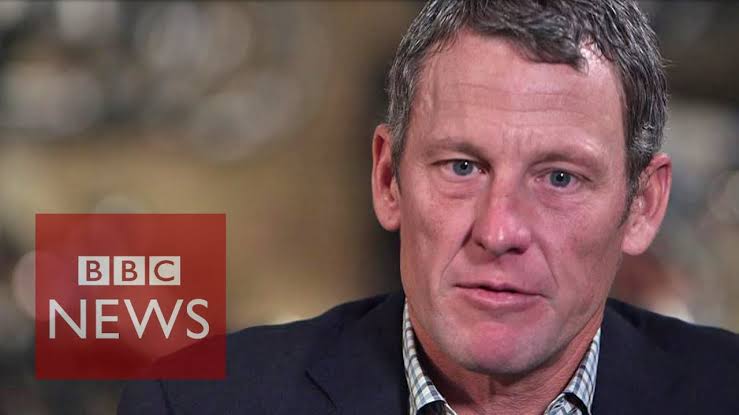Lance Armstrong On BBC News Reflects on Life After Doping Confession: A Journey of Redemption, Reflection Public’s Judgment and Moving Forward
Lance Armstrong, once hailed as one of the greatest cyclists in history, has been on a tumultuous journey since his confession to doping.
His recent interview with BBC News sheds light on the ongoing struggles and reflections that have marked his life in the years following his admission of using performance-enhancing drugs.
The Weight of Truth
Armstrong’s career reached its zenith when he won seven consecutive Tour de France titles between 1999 and
The turning point came in 2013 when Armstrong admitted to using banned substances during an interview with Oprah Winfrey. This confession was not just a moment of personal reckoning but a seismic shift that reverberated through the world of professional sports and beyond.
In his recent BBC interview, Armstrong revealed that his life post-confession has been far more challenging than he initially expected. “It has been heavier than I thought,” Armstrong admitted. This statement encapsulates the profound impact that his admission has had on his personal and professional life.
The fallout from his confession was swift and severe, including the stripping of his Tour de France titles, a lifetime ban from professional cycling, and widespread condemnation from fans, peers, and the public.
The Public’s Judgment
Armstrong’s confession was met with a mixture of shock, outrage, and condemnation. The public’s reaction was intense, driven by feelings of betrayal and disappointment.
The cycling community, which once celebrated Armstrong’s achievements, now viewed him with suspicion and dismay. The media coverage was relentless, and Armstrong became a symbol of dishonesty and deceit in sports.
“I told the world my story and I was condemned and judged immediately,” Armstrong reflected during the interview. This acknowledgment highlights the immediate and harsh response he faced after his confession.
It underscores the broader issue of how public figures are often judged swiftly and severely, especially when their actions undermine the values of integrity and fairness that their professions are built upon.
The Burden of Redemption
Since his confession, Armstrong has sought to rebuild his life and reputation. He has engaged in various public speaking engagements, written books, and attempted to contribute to discussions on doping and sports ethics.
Despite these efforts, the path to redemption has been fraught with difficulties. Armstrong’s efforts to move past his controversial past have often been overshadowed by the lingering shadow of his earlier deception.
The emotional and psychological toll of this journey cannot be understated. Armstrong’s reflections on the burden he carries reveal a deep sense of introspection and regret. The personal impact of being at the center of a major scandal, coupled with the ongoing public scrutiny, has been a heavy weight for him to bear.
Forgiveness and Understanding
One of the more poignant aspects of Armstrong’s recent interview is his perspective on forgiveness. Despite the severe criticism and judgment he has faced, Armstrong suggested that if he were a cycling fan on the streets, he might offer forgiveness. “If I were a cycling fan on the streets, I’d definitely forgive Lance Armstrong,” he said.
This statement highlights a complex aspect of human nature and public perception. For fans who once admired Armstrong’s prowess and achievements, there might be room for forgiveness and understanding.
The sentiment suggests that personal admiration for an athlete’s talent and achievements could potentially outweigh the bitterness of their transgressions.
Armstrong’s comment reflects a broader dialogue about forgiveness and redemption in the public eye. It raises questions about the nature of forgiveness, the capacity for change, and the ability of individuals to move past their mistakes. In Armstrong’s case, it suggests that while his actions had profound consequences, there is also an opportunity for personal growth and reconciliation.
Moving Forward
As Armstrong continues to navigate life after his doping confession, his reflections offer valuable insights into the human experience of dealing with regret and seeking redemption.
His journey is a testament to the challenges of reconciling past actions with present reality and the ongoing struggle to find a place in a world that has been irrevocably changed by one’s actions.
The road to redemption is rarely straightforward, and Armstrong’s story is no exception. It is marked by a complex interplay of public judgment, personal regret, and the quest for forgiveness.
Through his reflections, Armstrong provides a glimpse into the broader human struggle for redemption and the hope that, despite past mistakes, it is possible to find a path forward.
Leave a Reply